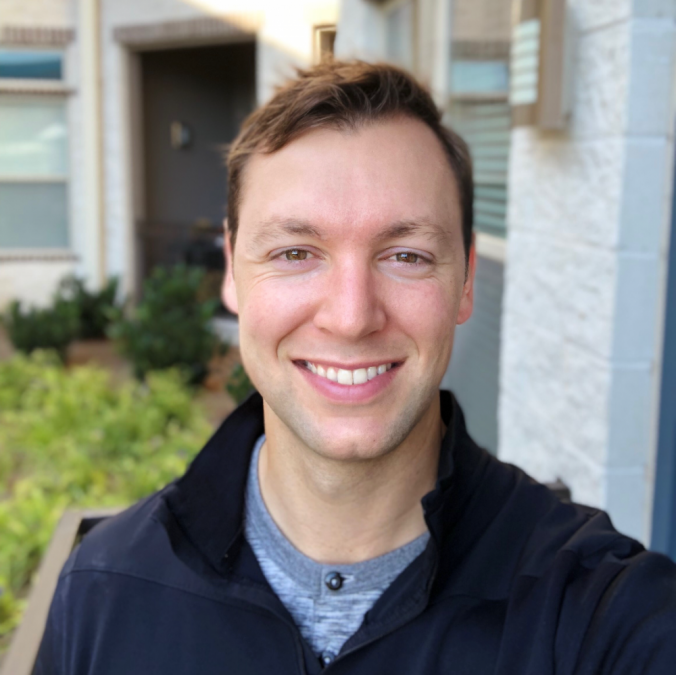The School Counseling program is excited to present Emily Clary with the 2017 Wardian Leadership Award.
Leadership is an important part of a school counselor’s role. We work to prepare our students to navigate the complex systems and circumstances that exist within a school community, and develop leaders who are willing to think creatively, take initiative, identify partnerships, engage in advocacy, and work effectively and efficiently to meet the vast need of students and families.
Emily already demonstrates these skills. I’m going to share about how she does this within her school cohort here at Gonzaga, at Garry Middle School her internship site, and within the school counseling profession.
At school, her peers said the following about her:
“Emily exudes passionate leadership. She has such a genuine presence, and people are drawn to her. It has been such a pleasure working with her over these last two years, and I am certain she will do great things in the years to come. I have personally been so inspired by her commitment and passion for the school counseling field and all it stands for. Her integrity, dependability and confidence are admirable. She puts her all into every task she takes on, and she never shies away from a challenge. I cherish the time we have had together, and I look forward to calling on her as a friend and colleague in the future.”
Another said:
“When I think about Emily I immediately think about how compassionate, confident, dedicated and goofy she is. She has a warm heart that she wears on her sleeve, paired with a smile that lights up the room. She is genuine and charismatic. She is a great leader and a thoughtful listener. I admire her ability to take the initiative to add comments or ask questions no matter what the class or topic may be. Emily adds to the classroom dynamic in a positive way and our cohort would not be the same without her.”
Finally:
“When I think of Emily, I think of an energetic and passionate leader committed to the entire school counseling community including her students, classmates, and fellow educators. Emily is an authentic individual who doesn’t shy away from asking hard questions or sharing her own experiences. She is a role model for both her students and her peers!”
At Garry Middle has served a diverse student population. In these efforts, Emily has worked closely with Jo, the mental health therapist (this has been a running joke in the cohort). I reached out to Jo and she shared the following:
“Emily is kind, positive, energetic, and radiates an openness that has enabled her to connect with students on a level that facilitates proven growth. It warms my heart to see students knocking at Emily’s door, asking when they can see her for an appointment or showing such excitement to share what they are learning and what they’ve accomplished. Emily’s presence at school has been invaluable and her dedication, knowledge and personal contribution to our field of counseling and for our students will be greatly missed.”
During her time at Garry, Emily also engaged with the HIllyard Youth Collaborative, a community/school partnership that works to provide additional supports to students. Within this project, Emily identified 26 students who needed additional assistance – these students struggled with attendance, finding a positive connection at school, and demonstrated behaviors. In thinking about how to serve this number of students most efficiently, Emily partnered with teacher education candidates from Dr. John Traynor’s “Teaching in the Middle School” class. Emily provided training to these future teachers on the role of the contemporary school counselor, the importance of teacher/counselor partnership, and small group facilitation. Following this, Emily and the teacher education candidates, provided a small group experience on the topic of growth mindset to the group of students at Garry, with teacher education candidates facilitating the discussions and Emily developing the weekly curriculum and overall supervision. This creative strategy is an example of effective partnership and leadership within the schools, while also educating others about the role of a school counselor.
Following this experience, a teacher education candidate reported the following:
“This project has made me realize that counselors don’t just sit in their offices all day and talk with students and parents. They do so much more like creating this program and others like it to provide further support for students. I’ve also learned the value of keeping in constant communication with the school counselor who can enlighten you on a student’s situation and provide you with support and resources to effectively teach.”
Along with this experience of professional leadership and advocacy, Emily has also presented with faculty at the American Counseling Association conference in Montreal, as well as several Washington School Counseling Association annual conferences. Her identity is passionately grounded in school counseling.
It is for these and many reasons that we honor Emily with this award.
-Dr. Addy Wissel
